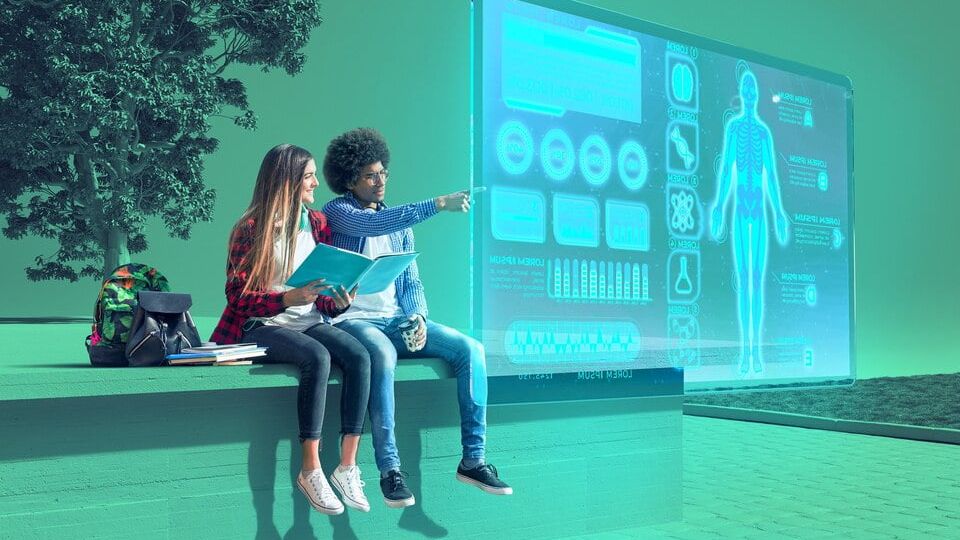


The Advent of AI in Education
In the ever-evolving landscape of education, Artificial Intelligence (AI) has emerged as a pivotal force that is reshaping the way we approach international education. The Impact of Artificial Intelligence on International Education is a topic of paramount significance. This article aims to provide an in-depth understanding of the transformative influence of AI on global education.
AI-Powered Learning: Revolutionizing Education Globally
The integration of AI into educational systems has revolutionized learning experiences. AI-driven adaptive learning systems tailor educational content to individual students, thereby enhancing the quality of education across borders. With AI at the helm, personalized learning is no longer a distant dream.
AI-Powered Tutors: A New Era of Learning Assistance
AI-powered tutors and virtual assistants have become integral components of modern education. These digital companions provide round-the-clock support, helping students navigate coursework, answer questions, and offer guidance. The traditional boundaries of the classroom are blurred as students embrace the limitless potential of AI.
Assessments in the AI Era
Online Proctoring: Ensuring Exam Integrity
The rise of online education brings forth new challenges, particularly in ensuring the integrity of assessments. AI-powered online proctoring systems have taken the lead in maintaining the fairness of exams by monitoring students for any suspicious activities.
Automated Grading: Efficiency and Objectivity
AI-driven automated grading systems offer efficiency and objectivity in assessing student work. These systems evaluate various question types, from multiple-choice to essays, ensuring that grading is not only prompt but also consistent.
Breaking Down Language Barriers
Real-Time Translation: Bridging Linguistic Gaps
Language diversity in international education can be a significant barrier to effective communication. AI-powered real-time translation services enable students and educators from diverse linguistic backgrounds to interact seamlessly, fostering a more inclusive and interconnected educational environment.
Language Proficiency Testing: An Objective Evaluation
AI plays a pivotal role in assessing language proficiency. Language tests powered by AI provide objective evaluations of students’ language skills, a vital component of language learning and international education.
Ethical and Privacy Considerations
Protecting Student Data: The Ongoing Challenge
The use of AI in education necessitates the utmost care in safeguarding student data. Educational institutions must implement robust data protection measures to ensure the privacy of their students.
Addressing Bias and Fairness: A Moral Imperative
Ensuring that AI-driven algorithms are free from bias and promote fairness is of paramount importance. In the realm of education, unbiased assessment and evaluation are fundamental to equitable learning experiences.
Challenges and Future Prospects
Overcoming Implementation Challenges: A Digital Transition
Implementing AI in educational institutions is not without its challenges. From technical barriers to training educators and students, the path to full integration is filled with hurdles.
The Future of AI in International Education
As we look to the future, the potential of AI in international education remains limitless. Emerging AI technologies are set to further transform the educational landscape, fostering global collaboration and innovative solutions.
Key Conclusion
The methods of creating and evaluating material are transformed by artificial intelligence. Teachers can save time for deeper student engagement by using artificial intelligence (AI) to create tests, assignments, and study materials.
Multiple-choice questions and other tests can be graded automatically, which speeds up the evaluation process without sacrificing uniformity or correctness.
AI has a significant and revolutionary impact on global education. From providing individualized instruction to streamlining administrative work and improving language learning. Global student engagement with education could be drastically changed by AI. But even as AI’s potential is being fully utilized, it is crucial to keep a human element in education and strike a balance between its capabilities and ethical issues.
The Impact of Artificial Intelligence on International Education is undeniable. It has ushered in a new era of personalized learning, transformed assessment methods, broken down language barriers, and prompted important ethical considerations. The challenges of implementation are real, but the promise of a brighter educational future is within reach. As we journey forward, embracing AI in education while addressing ethical concerns, we are laying the groundwork for a global educational landscape that is inclusive, innovative, and unparalleled in its capacity to empower students worldwide.



